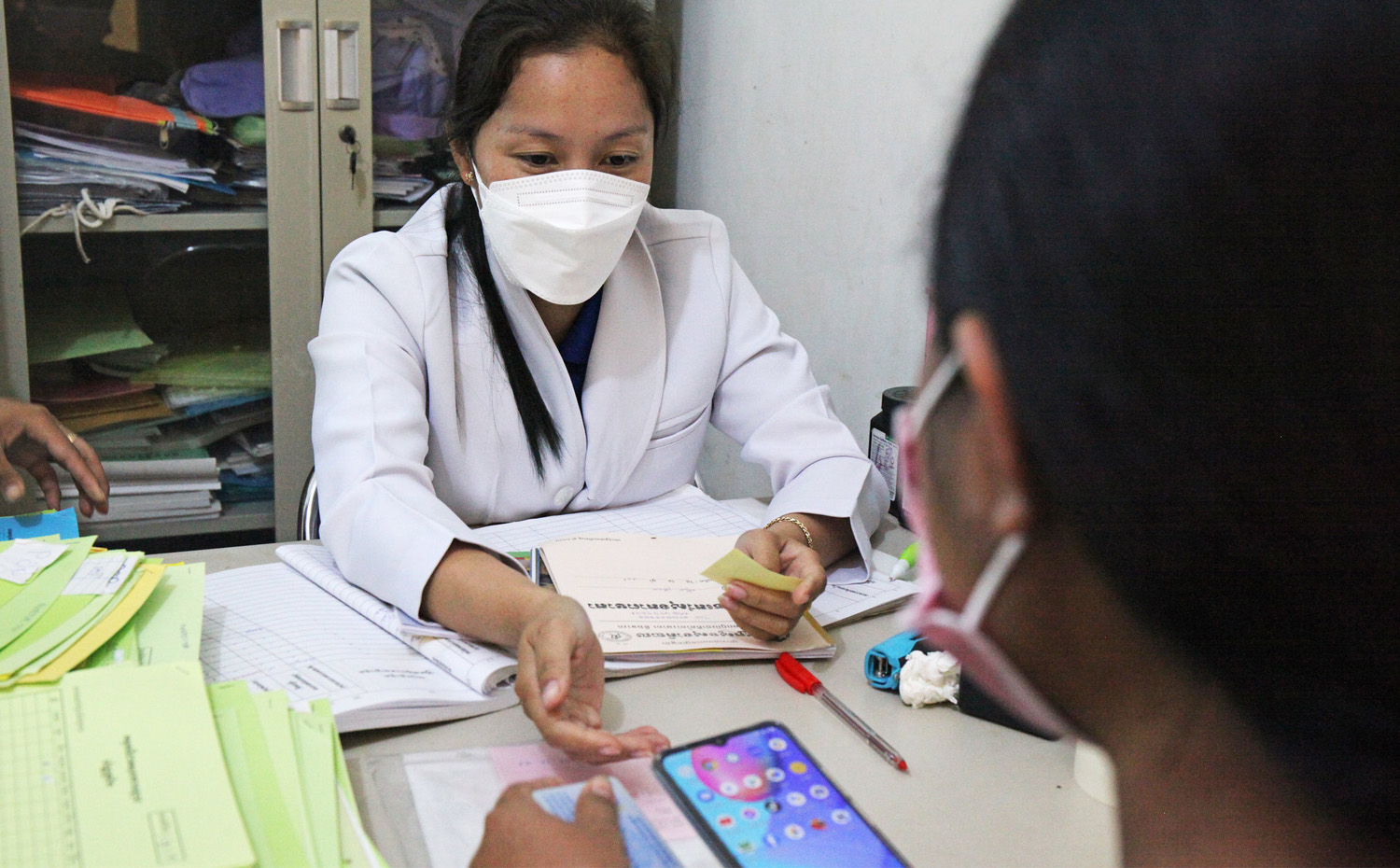“Good Families Raise Smart Kids” Campaign
An SBC intervention to support pregnant women and new mothers to improve their and their new born baby’s health and nutrition

Malnutrition is a problem for children under the age of five in low-income households in rural Cambodia. It causes stunting, illnesses, infections, increased risk of mortality, delayed cognitive development, poor performance in school, and fewer years in school. The 2014 Cambodia Demographic and Health Survey (2014 CDHS), 32% of children under 5 are stunted. One in ten Cambodian children under five is wasted, a sign of acute malnutrition. Twenty-four percent of children under five are underweight.
In line with the national health development goal, the USAID-funded Promoting Healthy Behaviors (PHB) Activity is implementing a social and behavior change (SBC) activity with its local implementing partner to support pregnant women and new mothers to improve their and their new born baby’s health and nutrition. This project is being implemented in Kampong Cham and Kampong Chhnang provinces with technical support from National Maternal and Child and Health Center (NMCHC) and provincial center for Maternal Child and Health (MCH).
IMPLEMENTATION
- Introduce interactive voice response (IVR) service to women who are 8-months pregnant during their antenatal care (ANC) classes.
- Help pregnant women in ANC classes to sign up for IVR messages that they will receive up to and after delivery.
TARGET AUDIENCES
- Primary Audiences: Mothers from 8 months pregnant to 24 months postpartum
- Secondary Audiences: Anyone who is likely to influence a postpartum mother’s decision on raising her baby: Mother (grandmother), husband, healthcare workers and midwife
BEHAVIORAL OBJECTIVES
- Breastfeed newborns within the first hour of birth
- Exclusive breastfeeding for the first 6 months
- Continue breastfeeding for 2 years
- Visit health facility (public or private) for at least 4 PNC check-ups with baby within 10 weeks of delivery
- Introduce adequate and age-appropriate (quantity and variety) complementary diet for children 6-23 months old
STRATEGY AND TOOLS

The centerpiece of this intervention is the use of Interactive Voice Response (IVRs) – once sign up, mothers will receive scheduled phone calls with recorded messages on caring for their newborns and to remind mothers to perform key behaviors.
The “Good Families Raise Smart Kids” IVR concept instills the crucial role of family, not just mothers, to raise a child. It also highlights the key motivator – families want to do what is right for their children which makes them smart. The content is delivered as a conversation between primary character, a new mother named Theary and three supporting characters. During each IVR, the listener hears correct and timely healthcare instructions and information that relates to the recipient’s own stage on the pregnancy and postnatal journey.
IVR system to inform and remind mothers to perform key behaviors 1, 2, 4 and 5 mentioned above
Pre and post-birth sign up posters to create awareness of the Good Families Raise Smart Kids IVR intervention and encourage women to ask their midwives about the benefits of IVR and to help them sign up
Phone sticker to remind mothers to answer their IVR calls
Sign up guide to assist midwives to sign mothers up to the IVR service

MONITORING, EVALUATION AND LEARNING
PHB conducts ongoing monitoring of this and all its SBC activities, capturing data in terms of activities implemented, people reached, and materials distributed, as well as information on beneficiaries’ knowledge, attitudes, and behavior prior to and after exposure to PHB’s activities. Results and lessons learned are used to iterate and improve the SBC activities, and are regularly shared with the wider SBC community.

* The Promoting Healthy Behaviors (PHB) Activity is a USAID-funded Social and Behavior Change project that commenced in 2018. The goal of PHB is to improve health behaviors among Cambodians and ensure they seek and receive quality healthcare with decreased financial hardship. PHB initially targeted 6 key health areas: Maternal & Child Health; Nutrition; Water, Sanitation and Hygiene (WASH); Tuberculosis; Family Planning; and Malaria. In 2020-2021, PHB also implemented COVID-related activities in response to the global pandemic. Towards the end of 2021, noncommunicable diseases (NCDs) were added to PHB’s health portfolio, and the project was extended until June 2025.



